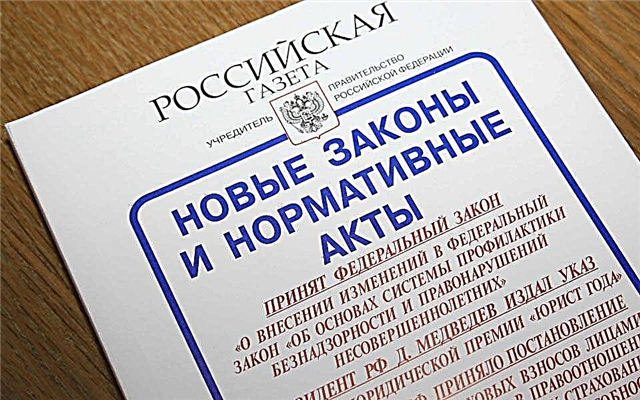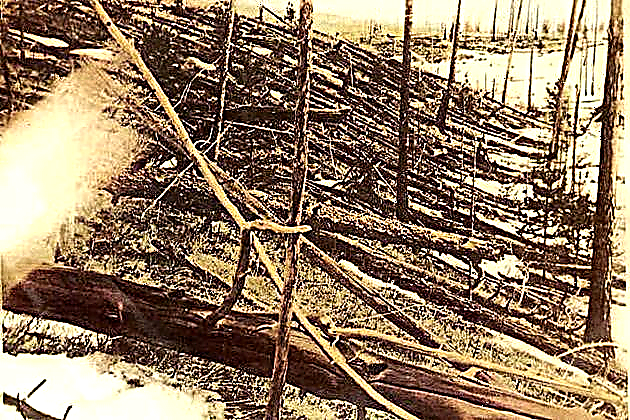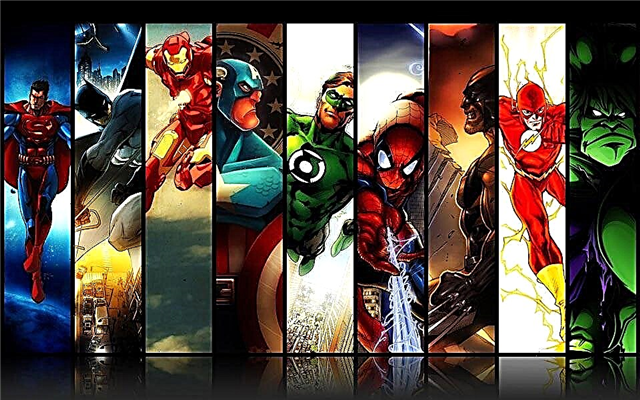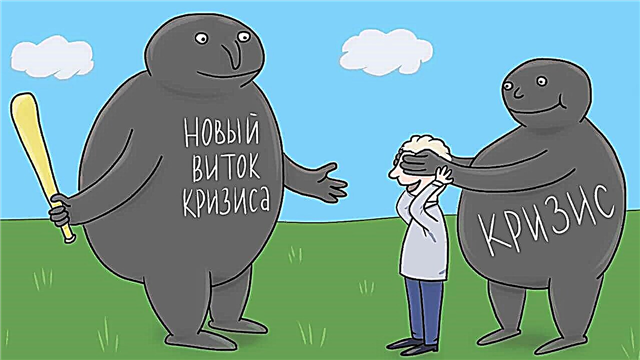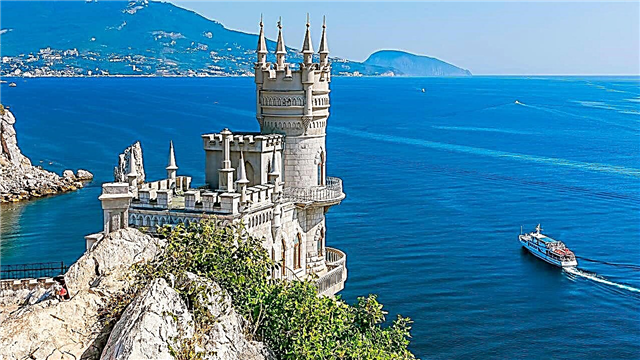The Pancake Week began on March 7, a holiday in which popular consciousness bizarrely mixes Christianity and half-forgotten ancient pagan rites. How to distinguish one from the other and why pancakes, is described in our list top 10 facts about Shrovetide.
10. Eat for future use
 There is no name “Shrovetide” in the church calendar - there is a “meaty” or “cheese” week. Its beginning and end are determined by the date of Easter and change every year, although they depend on the date of the vernal equinox. In fact, Shrovetide is the last chance for the Orthodox to eat properly before a long, stern fast.
There is no name “Shrovetide” in the church calendar - there is a “meaty” or “cheese” week. Its beginning and end are determined by the date of Easter and change every year, although they depend on the date of the vernal equinox. In fact, Shrovetide is the last chance for the Orthodox to eat properly before a long, stern fast.
9. What is in my name?
 The name "Shrovetide" appeared only in the 17th century. In general, they just don’t call it “Pancake maker”, “Gluttony week”, and “Milkmaid”, and “cow and horse holiday” and so on. But most of all we like “The Sorceress”.
The name "Shrovetide" appeared only in the 17th century. In general, they just don’t call it “Pancake maker”, “Gluttony week”, and “Milkmaid”, and “cow and horse holiday” and so on. But most of all we like “The Sorceress”.
8. Pagan roots
 Shrovetide has absorbed much of the ancient rituals of seeing off winter. Some believe that some of the Pancake week ceremonies and entertainments were borrowed from the winter holiday dedicated to Volos, the deity of fertility of the land and livestock. Others believe that Shrovetide is one of the names of the goddess Lely, the daughter of Makosha, who, along with her sister Lada, was responsible for love and fertility. And still others are looking for sunny roots in Maslenitsa - because it was at this time that the ancient Slavs celebrated the vernal equinox, the border between winter and spring and the beginning of the new year.
Shrovetide has absorbed much of the ancient rituals of seeing off winter. Some believe that some of the Pancake week ceremonies and entertainments were borrowed from the winter holiday dedicated to Volos, the deity of fertility of the land and livestock. Others believe that Shrovetide is one of the names of the goddess Lely, the daughter of Makosha, who, along with her sister Lada, was responsible for love and fertility. And still others are looking for sunny roots in Maslenitsa - because it was at this time that the ancient Slavs celebrated the vernal equinox, the border between winter and spring and the beginning of the new year.
7. The dark side
 Despite the widespread opinion, pancakes were never a sunny symbol in Russia. Slavic pancakes are a traditional element of the funeral feast (since the ancestors were responsible for the fertility of the earth, they had to be well catered for). And from the rituals of honoring the dead Maslenitsa included fist fights, horse races and plentiful feasts, which were once memorial.
Despite the widespread opinion, pancakes were never a sunny symbol in Russia. Slavic pancakes are a traditional element of the funeral feast (since the ancestors were responsible for the fertility of the earth, they had to be well catered for). And from the rituals of honoring the dead Maslenitsa included fist fights, horse races and plentiful feasts, which were once memorial.
6. Who needs pancakes?
 What mistress did not survive the sad minutes when the first pancake, poured into the pan, went in folds and gathered in an ugly pile. "The first pancake is lumpy!" She sighs. But in reality, not by what (“lump”), but by whom (“lumps”). “Com”, i.e. "Standing on its hind legs" - one of the nicknames of a bear among the Slavs. In order for the land to be fertile, livestock gave birth, and the bears lived in the forest and did not touch people, the ancient Slavs brought the first pancake to the godfelt sacred animals of the god Veles.
What mistress did not survive the sad minutes when the first pancake, poured into the pan, went in folds and gathered in an ugly pile. "The first pancake is lumpy!" She sighs. But in reality, not by what (“lump”), but by whom (“lumps”). “Com”, i.e. "Standing on its hind legs" - one of the nicknames of a bear among the Slavs. In order for the land to be fertile, livestock gave birth, and the bears lived in the forest and did not touch people, the ancient Slavs brought the first pancake to the godfelt sacred animals of the god Veles.
5. Check for zombies
 Everyone knows the sad story about a snowy girl - the Snow Maiden, who so wanted to live among people. And although she was not bloodthirsty, there was no place for the dead among the living, so the poor thing melted during the traditional Maslenitsa ceremony - jumping over a fire. So the ancient Slavs recognized the undead who wandered towards them by chance or with villainous purposes.
Everyone knows the sad story about a snowy girl - the Snow Maiden, who so wanted to live among people. And although she was not bloodthirsty, there was no place for the dead among the living, so the poor thing melted during the traditional Maslenitsa ceremony - jumping over a fire. So the ancient Slavs recognized the undead who wandered towards them by chance or with villainous purposes.
4. Expensive price
 At the end of the gluttonous week, the procession of the mummers, bursting into tears under the funeral songs, carries a straw scarecrow on a stretcher, which (sometimes after the court scene) is then burned so that next year will be fruitful and good luck will accompany everyone. But once a scarecrow was not a scarecrow at all.
At the end of the gluttonous week, the procession of the mummers, bursting into tears under the funeral songs, carries a straw scarecrow on a stretcher, which (sometimes after the court scene) is then burned so that next year will be fruitful and good luck will accompany everyone. But once a scarecrow was not a scarecrow at all.
3. Amulets time
 The mummers perform another important role in Pancake mythology - they drive away winter, illness, and evil spirits. Young guys put on masks, fur coats inside out and go around the neighborhood, ring bells, twist rattles or simply and unpretentiously yell loudly.
The mummers perform another important role in Pancake mythology - they drive away winter, illness, and evil spirits. Young guys put on masks, fur coats inside out and go around the neighborhood, ring bells, twist rattles or simply and unpretentiously yell loudly.
2. Spring and love
 Shrovetide is a time of fun and ambiguous jokes. Guys turn up girls and girls poke fun at guys in revenge. Mummers play scenes between the masks of "grandfather" and "women", often of an openly erotic nature. It was also customary to perform Maslenitsa ceremonies on young people who took off their duty — did not marry or did not get married. They could even tie a wooden block to their leg (it was filmed for ransom).
Shrovetide is a time of fun and ambiguous jokes. Guys turn up girls and girls poke fun at guys in revenge. Mummers play scenes between the masks of "grandfather" and "women", often of an openly erotic nature. It was also customary to perform Maslenitsa ceremonies on young people who took off their duty — did not marry or did not get married. They could even tie a wooden block to their leg (it was filmed for ransom).
1. Around the world
 Other countries also have their own Pancake week. On the last day before Lent, stiff Britons hold pancake relay races - races with a hot frying pan in the hand on which the pancake lies. And he needs to be thrown! In Germany, they celebrate Fastnacht, the mummers are crowding in the streets and everyone is drinking beer and mulled wine. In the Scandinavian countries during the “Vastlavya” children in carnival costumes walk the streets, asking passers-by and neighbors for sweets. And the famous Orleans Mardi Gras is the same Pancake week carnival.
Other countries also have their own Pancake week. On the last day before Lent, stiff Britons hold pancake relay races - races with a hot frying pan in the hand on which the pancake lies. And he needs to be thrown! In Germany, they celebrate Fastnacht, the mummers are crowding in the streets and everyone is drinking beer and mulled wine. In the Scandinavian countries during the “Vastlavya” children in carnival costumes walk the streets, asking passers-by and neighbors for sweets. And the famous Orleans Mardi Gras is the same Pancake week carnival.

